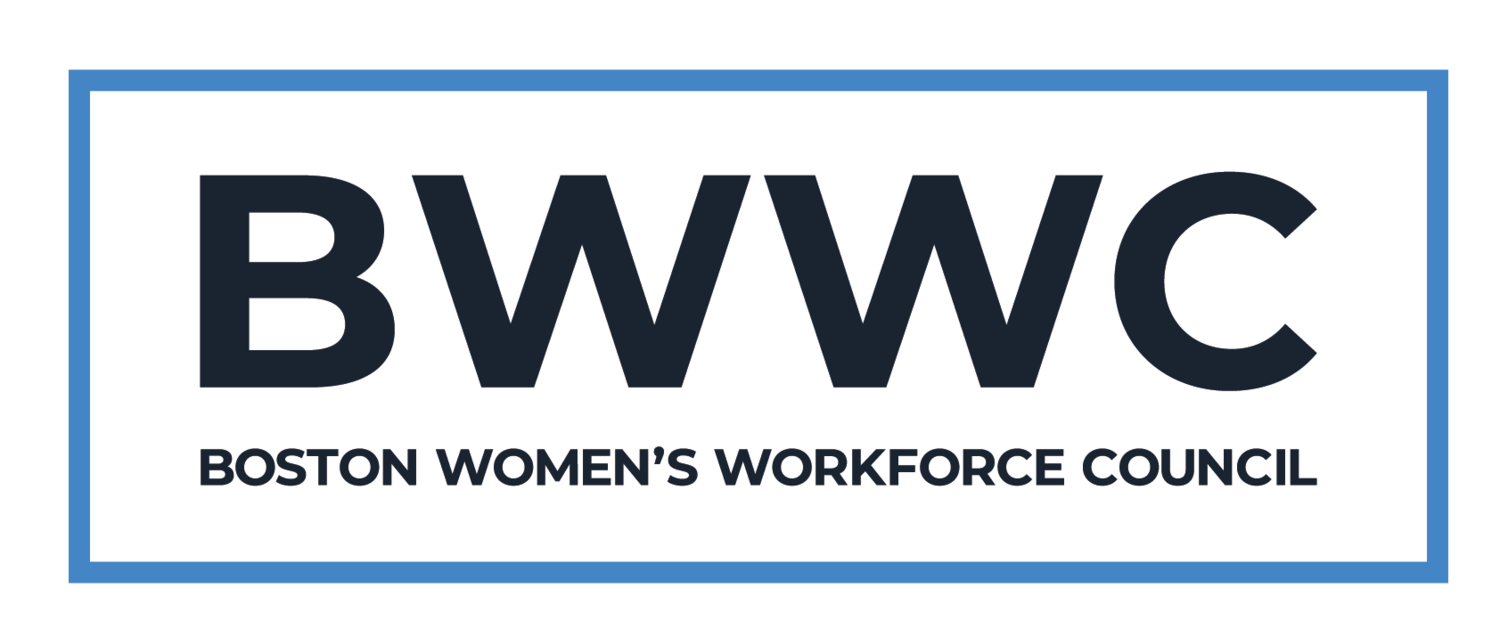Takeaways from our Q1 Member Briefing: Advancing Women of Color in the Workplace
On March 26, 2020, in recognition of Equal Pay Day, we held our first-ever virtual 100% Talent Compact Signer briefing to discuss Advancing Women of Color in the Workplace.
Gender wage gap reports over the years have consistently demonstrated wider disparities when broken down by race. In addition to long-term financial losses and national economic impact, these disparities translate and manifest in the workplace as bias and discrimination. To have a better understanding on how these experiences have a pronounced impact for women of color as they enter the workforce, progress into managerial and eventual senior positions, Beth Chandler, Council Member and President and CEO of YW Boston, moderated a panel discussion featuring:
Lily Mendez - CEO & President, Mass Mentoring Partnership
Carolyn Brunis Luc - Program Manager, D&I, Suffolk Construction
Laurie Nsiah-Jefferson - Director for the Center for Women in Politics and Public Policy at UMass Boston
Panelists shared stories from their personal career journeys, what has been instrumental to their career advancement and their advice for employers as they navigate this in their organizations.
3 Key Takeaways
Individual Experiences Can Signal a Systemic Issue
Panelists shared their personal stories on the barriers they faced in their careers because of the intersection of their gender and race. Lily Mendez reminded us these individual stories represent a larger systemic issue. These individual occurrences are unfortunate and wrong but far from unique. When an employee or colleague of color raises an incident or concern in the workplace, it is critical that employers listen with gravity as it could be telling of an organization-wide issue.
“Believe our experience when we tell you what it is.
”
“You don’t need to have all the answers. Your voice doesn’t necessarily have to be perfect, but your voice matters.”
It might be easier to dismiss these one-time instances due to discomfort or even admire women of color who achieve success in spite of their hurdles, but what we are witnessing are systemic issues playing out in the workplace.
Related resources:
Sponsorship Provides Access
Acknowledging the different sectors represented on the panel, Beth Chandler asked the panelists to discuss what employers can do to ensure that women of color are included, supported and retained.
“Create a small committee made of women/people of color to support recruiting efforts to work alongside talent acquisition.”
A prominent strategy discussed to help career advancement was sponsorship. Panelists recognized the value that personal contacts, leaders within an organization, and employer initiatives have had in their trajectories.
“Personal and professional networks make a huge difference in propelling your career.”
“Women of color who have the power and who can put you in the front of the room is vital.”
For some, their organizations have yet to implement, are hesitant to adopt, or quite simply do not have the capacity to implement a sponsorship program. Lily Mendez also reminded us that sponsorship does not need to be a formal program. Sponsorship in its plainest form is mentorship. Building relationships can be an informal process, and regardless of how these professional relationships are shaped and developed, they enable access to opportunity. Access to otherwise exclusive meetings, projects, positions, etc. Panelists encouraged the audience to not let lack of employer initiative stop them from reaching out for sponsorship.
“Look at people who are in leadership positions in the organization and thinking ‘who can I be in a relationship with’ and be proactive about making a sponsorship.”
Related resources:
Equity is Not Possible Without the Support From Allies
Last summer, we discussed male allyship, but in this conversation, we raised a question that often gets asked but hardly ever discussed: How can white women support and advocate for women of color? Just as men are asked to advocate for women in the workplace, it is critical that white women seek out opportunities to listen and support women of color.
“If women, who are not women of color, want to support us, they need to be authentic with us and need not patronize us. They need to make sure that we are coming along with them and not behind them.”
“In order for you to be an advocate for me, and women like me, you need to have the conversation continuously. Continue to ask.”
Related Resources:
We’re working on exciting ways to continue this conversation. In the meantime, we ask you to share this blog with your networks. If you’re a 100% Talent Compact signer, share your thoughts on the Community Board.
For COVID-19 resources, please visit our previous blog post.








